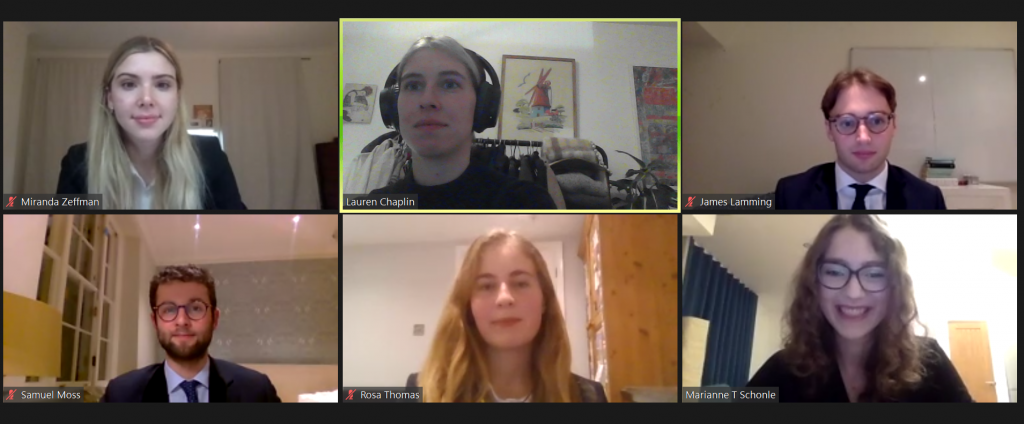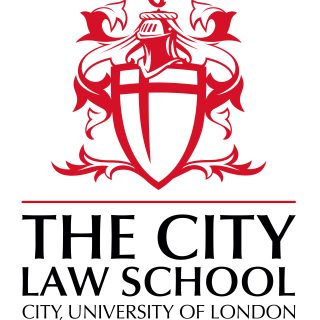Excitingly, the final of the 2020 Human Rights Lawyers Association Judicial Review Moot consisted of not one, but two City teams. *Spoiler alert* James Lamming and Rosa Thomas were ultimately successful, but Miranda Zeffman and Samuel Moss, came in at a very close second.

The HRLA reported that competition for the 2020 HRLA Judicial Review Competition was fierce, with entries up markedly from previous years. The moot was run by Lauren Chaplin and Marianne Schönle, members of Young Lawyers Committee of the HRLA. Here’s what they said about the finalists:
After beating 6 other teams in the semi-final, both pairs of finalists delivered engaging, confident, thoroughly-reasoned speeches, and dealt incredibly well with the lack of immediate feedback and technical glitches posed by Zoom. We have no doubt that they will all pursue successful careers at the Bar.
Here’s a reflection from James on the experience:
The Human Rights Lawyers’ Association Moot 2020 was an extremely well-run, interesting, and enjoyable competition. Facilitated by the power of Zoom, the moot comprised three rounds for 95 teams. The problem was both topical and nuanced; it revolved around a prospective video-link Parole Board hearing for an individual with undiagnosed learning difficulties and whether such a hearing would, on the facts, be unfair as a matter of common law and under Article 6 of the ECHR. The first round was judged solely on written submissions of no more than 1000 words. Of these, the top eight were chosen to proceed to the application stage at the semi-final level judged by a range of solicitors and barristers.
The final was this year held before a star-studded panel of Lord Justice Singh, Mr Justice Knowles, and Miss Allison Munroe QC. It was also an all-City and an all-GDL affair: Rosa and I representing the Claimant (and, more importantly, GDL Group J), and Samuel Moss and Miranda Zeffman for the Respondent. Rosa and I were delighted to win and Lord Justice Singh kindly provided all the finalists with useful and feedback and advice on our advocacy.
All in all, the experience was fantastic; in addition to the judges (who kindly gave up their first night after Lockdown #2 to adjudicate) I would particularly like to thank Phillip Rule (for setting an excellent moot problem), and Marianne Schonle and Lauren Chaplin (for organising the event and putting up with our many tedious emails).

